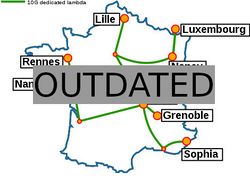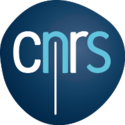Grid5000:Home
|
Grid'5000 is a large-scale and versatile testbed for experiment-driven research in all areas of computer science, with a focus on parallel and distributed computing including Cloud, HPC and Big Data. Key features:
Older documents:
|
Random pick of publications
Five random publications that benefited from Grid'5000 (at least 2777 overall):
- Edouard Guégain. Configuration-driven Software Optimization. Data Structures and Algorithms cs.DS. Université de Lille, 2023. English. NNT : 2023ULILB020. tel-04350545v2 view on HAL pdf
- Chih-Kai Huang. Scalability of public geo-distributed fog computing federations. Other cs.OH. Université de Rennes, 2024. English. NNT : 2024URENS055. tel-04910860v2 view on HAL pdf
- Antoine Omond, Hélène Coullon, Issam Raïs, Otto Anshus. Leveraging Relay Nodes to Deploy and Update Services in a CPS with Sleeping Nodes. CPSCom 2023: 16th IEEE International Conference on Cyber, Physical and Social Computing, Dec 2023, Danzhou, China. pp.1-8, 10.1109/iThings-GreenCom-CPSCom-SmartData-Cybermatics60724.2023.00102. hal-04372320 view on HAL pdf
- Roblex Nana, Claude Tadonki, Petr Dokládal, Youssef Mesri. Energy Concerns with HPC Systems and Applications. 2023. hal-04213338 view on HAL pdf
- Can Cui, Imran Ahamad Sheikh, Mostafa Sadeghi, Emmanuel Vincent. Joint Beamforming and Speaker-Attributed ASR for Real Distant-Microphone Meeting Transcription. 2023. hal-04755558 view on HAL pdf
Latest news
Failed to load RSS feed from https://www.grid5000.fr/mediawiki/index.php?title=News&action=feed&feed=atom: Error parsing XML for RSS
Grid'5000 sites
Current funding
As from June 2008, Inria is the main contributor to Grid'5000 funding.
INRIA |
CNRS |
UniversitiesUniversité Grenoble Alpes, Grenoble INP |
Regional councilsAquitaine |


